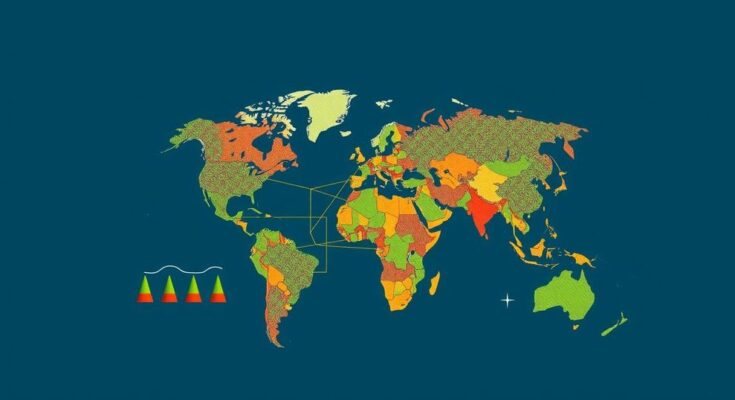The International Court of Justice is addressing climate change responsibilities following a UN resolution aimed at clarifying states’ obligations under international law. This initiative, driven by Pacific Island nations and global advocates, seeks to establish legal frameworks to hold countries accountable for climate impacts. The advisory opinion from the ICJ may significantly enhance legal recourse for victims of climate change and influence future climate policy and actions.
The climate crisis has escalated into an emergency, manifesting through more frequent extreme weather events and impacts such as rising sea levels and desertification. For years, nations most culpable for climate change have neglected their responsibilities. However, a pivotal moment has arisen with the International Court of Justice (ICJ) addressing these issues. Following the United Nations General Assembly’s unanimous resolution on March 29, 2023, the ICJ is tasked with providing an advisory opinion regarding states’ obligations concerning climate change. This following initiative arose primarily from the efforts of Pacific Island nations, notably Vanuatu, and numerous global activists. The ICJ’s involvement highlights the need to define the legal responsibilities of states under international law, particularly regarding climate change impacts on human rights and environmental sustainability. An Advisory Opinion from the ICJ may offer essential clarity, enabling stronger legal frameworks to hold states accountable for their actions affecting climate change. It is anticipated that this opinion will not only influence existing and future litigation but also invigorate political momentum towards sustainable climate action at both national and global levels. The process toward this opinion has unfolded with significant milestones, including a record number of written submissions from various nations and organizations scheduled until 2025. The outcomes hold the promise of establishing legal repercussions for states that fail to uphold environmental responsibilities, thus enhancing public accountability for climate-related harms. The Center for International Environmental Law (CIEL) has actively contributed to this initiative, providing legal insights, organizing briefings, and collaborating with other entities to mobilize support for climate justice.
The climate situation has reached a critical juncture, with numerous regions experiencing dire impacts from climate change, making the legal discourse surrounding it increasingly important. The International Court of Justice (ICJ) has been mandated to clarify the legal frameworks governing states’ obligations regarding climate action. This evolving context of climate emergency underscores the necessity for international legal mechanisms that hold nations accountable for their environmental policies and impacts. The push for an advisory opinion by entities like Vanuatu and the collaborative effort of numerous states exemplify the escalating desire for effective legal recourse in addressing climate grievances. These proceedings are augmented by parallel actions in other judicial forums, creating a robust coalition for climate accountability.
The proceedings initiated by the ICJ represent a defining moment in the global struggle for climate justice. They aim to elucidate the legal frameworks within which states are required to operate concerning climate change, potentially revolutionizing the accountability landscape. The significant legal implications of the ICJ’s forthcoming advisory opinion could profoundly influence climate policies and legal actions worldwide, reinforcing the intertwined relationship between environmental protections and human rights. As nations anticipate the court’s ruling, the necessity for proactive climate governance has never been clearer.
Original Source: www.ciel.org




